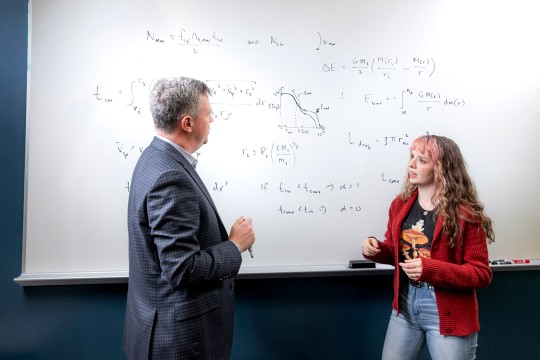NTID’S New Center On Access Technology Wins NSF Grant
The project will evaluate the C-Print real-time captioning system, the Computer-Assisted Realtime Translation (CART) system, and an automatic speech recognition system for effectiveness and cost efficiency in an educational environment. Researchers will work with deaf and hard-of-hearing students enrolled in baccalaureate programs at Rochester Institute of Technology to test the systems under controlled lecture-venue conditions.
These systems will be compared for accuracy in rendering the lecturer’s narrative, students’ comprehension of lecture content, and ease of use and deployment from both the students’ and lecturers’ points of view. Additionally, the project will develop and evaluate display systems capable of presenting a unified view of multiple inputs (instructor, PowerPoint, interpreter, captions) and levels of information, for ease of comprehension in the classroom. Results from this study will also benefit students for whom English is a second language and students with special needs.
Speech to Text Systems: Comparative Analysis of Text Generation and Display Methods will be led by Dr. Peter Lalley, principal investigator, who will work with investigators Catherine Beaton and Jonathan Schull of RIT’s Golisano College of Computing and Information Sciences.
The NTID Center for Access Technology is a national collaborative research effort between RIT, other universities, industry, and professional organizations, to explore ways to increase access to education for those who are deaf or hard of hearing. The center aims to develop technological solutions to give students greater independence and to find ways to use and adapt innovative technologies to educational and other settings.
NTID is the first and largest technological college in the world for deaf and hard-of-hearing students. One of eight colleges of RIT, NTID offers educational programs and access and support services to the 1,100 deaf and hard-of-hearing students from around the world who study, live, and socialize with 14,400 hearing students on RIT’s Rochester, N.Y., campus.
Web address: http://www.rit.edu/NTID.
For more NTID news, visit http://www/rit/ntid/newsroom.











